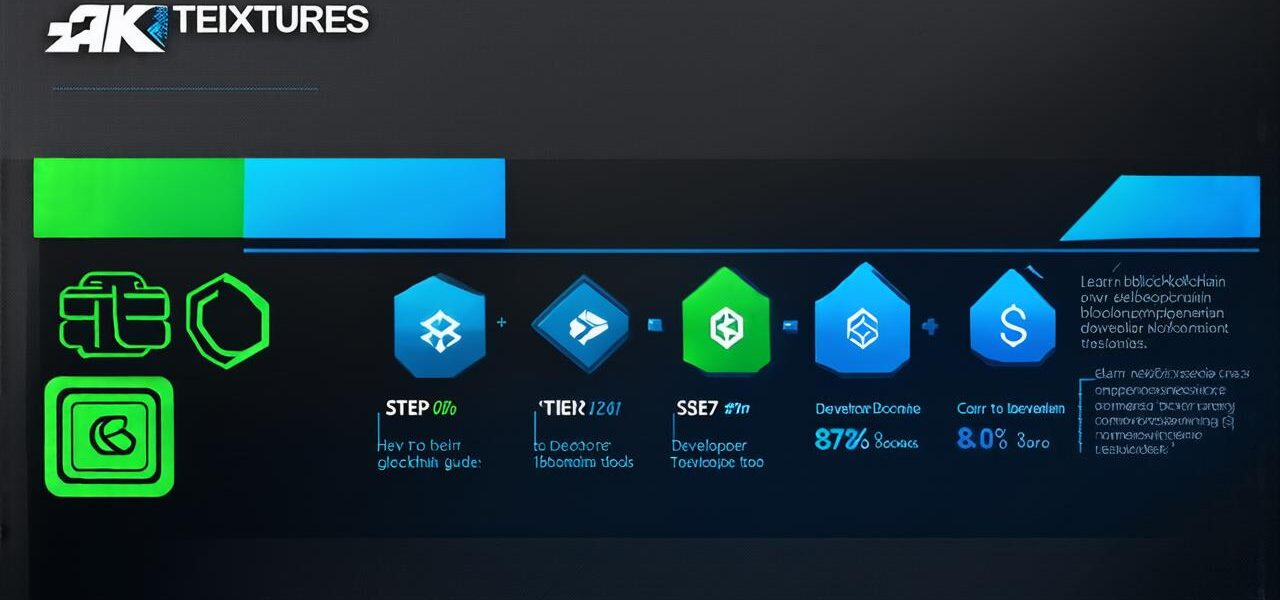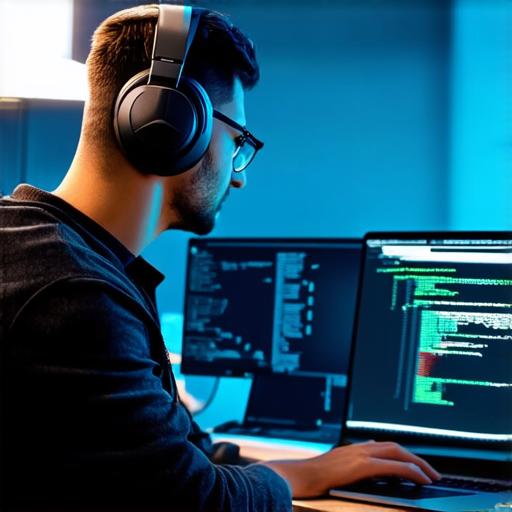
How to Become a Blockchain Developer: A Comprehensive Guide
Blockchain technology is one of the most promising and rapidly-evolving technologies in the world today. It offers countless benefits, including increased security, transparency, and efficiency, which has led to its widespread adoption in various industries such as finance, supply chain management, and healthcare.
What is Blockchain Development?
Blockchain development refers to the process of building and maintaining decentralized applications (dApps) on top of a blockchain network. These dApps can be used for a variety of purposes, such as digital identity management, voting systems, and supply chain tracking.
What Skills Do You Need to Become a Blockchain Developer?
Becoming a blockchain developer requires a combination of technical skills and knowledge, as well as soft skills such as communication and teamwork. Here are some of the key skills you need:
- Programming skills in a relevant language (such as Solidity for Ethereum or Java for Hyperledger Fabric)
- Understanding of cryptography and consensus algorithms
- Knowledge of smart contract development and deployment
- Familiarity with blockchain platforms and protocols (such as Bitcoin, Ethereum, and Hyperledger)
- Experience with testing and debugging blockchain applications
Soft Skills
* Strong problem-solving skills
* Good communication skills to explain complex concepts to non-technical stakeholders
* Ability to work independently or as part of a team
* Willingness to learn new technologies and adapt to changing requirements
How to Start Your Journey as a Blockchain Developer
If you’re ready to start your journey as a blockchain developer, here are some steps you can take:
- Learn the basics of blockchain technology: Before diving into coding, it’s important to have a solid understanding of the fundamental concepts behind blockchain technology. Start by reading books and articles on the subject, taking online courses, or attending conferences and meetups.
- Choose a programming language: Decide which programming language you want to specialize in based on your career goals and interests. Solidity for Ethereum is a popular choice for building dApps on the Ethereum network, while Rust for Bitcoin is used for building decentralized applications on the Bitcoin network.
- Build projects: Practice what you’ve learned by building projects on your own or collaborating with others. This will help you gain hands-on experience and build a portfolio of work to show potential employers.
- Join online communities: Connect with other blockchain developers through online forums, social media groups, and Stack Overflow. These communities can provide valuable resources, advice, and networking opportunities.
- Consider getting certified: While certification is not always necessary to become a blockchain developer, it can demonstrate your expertise and commitment to the field. There are several organizations that offer blockchain certifications, such as the Certified Blockchain Developer (CBD) program offered by the Blockchain Academy.
Case Studies: Real-Life Examples of Successful Blockchain Developers
To inspire you and give you a better understanding of what it takes to become a blockchain developer, here are some real-life examples of successful developers in the field:

- Andreas Antonopoulos: Andreas Antonopoulos is a well-known blockchain expert and author who has written several books on the subject, including “Mastering Bitcoin” and “Blockchain Blueprint.” He has also worked with several major clients, including Microsoft, Citigroup, and Bloomberg.
- Joseph Lubin: Joseph Lubin is the co-founder of ConsenSys, a blockchain software company that provides solutions for various industries. He has also founded the Ethereum Foundation, which supports the development and deployment of decentralized applications on the Ethereum network.
- Vitalik Buterin: Vitalik Buterin is the founder of Ethereum, the world’s second-largest cryptocurrency by market capitalization. He has also worked with several major clients, including IBM and Deloitte, to develop blockchain solutions for various industries.
Conclusion: The Future of Blockchain Development is Bright
Blockchain technology is still in its early stages, but it’s clear that it will continue to play an increasingly important role in our lives in the years to come. Whether you’re interested in building decentralized applications for supply chain management or creating digital identity systems, there are countless opportunities for blockchain developers to make a real difference.
FAQs
What is blockchain development?
Blockchain development refers to the process of building and maintaining decentralized applications (dApps) on top of a blockchain network.
What skills do you need to become a blockchain developer?
Becoming a blockchain developer requires a combination of technical skills and knowledge, as well as soft skills such as communication and teamwork. Here are some of the key skills you need:
- Programming skills in a relevant language (such as Solidity for Ethereum or Java for Hyperledger Fabric)
- Understanding of cryptography and consensus algorithms
- Knowledge of smart contract development and deployment
- Familiarity with blockchain platforms and protocols (such as Bitcoin, Ethereum, and Hyperledger)
- Experience with testing and debugging blockchain applications
How do I start my journey as a blockchain developer?
Start by learning the basics of the technology, choosing a programming language, building projects, joining online communities, and considering getting certified.



